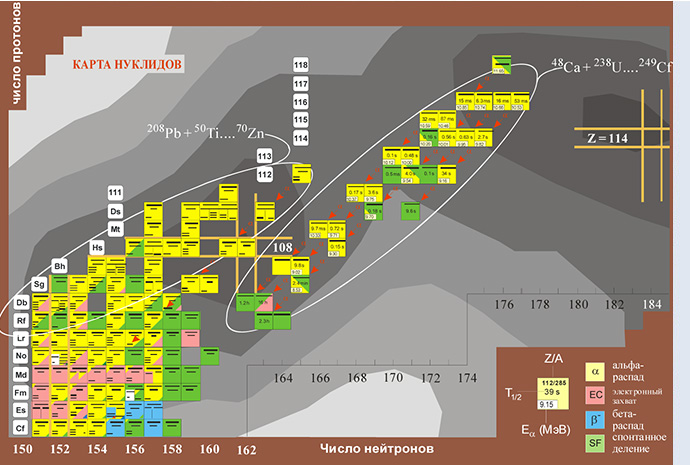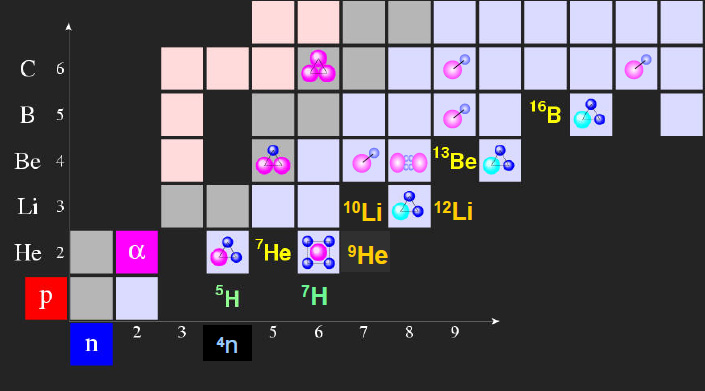Nuclear interactions

The study of the properties of nuclei under extreme conditions – exotic nuclei – is at the forefront of nuclear research. Such nuclei are characterized by a large angular momentum ("furious" rotation), high excitation energy ("hot" state), large deformation (super and hyper deformation, nuclei with an unusual configuration), neutron-rich and proton-rich nuclei, heavy Z > 110 nuclei. They play an important role in the study of fundamental properties of nuclei, bringing us to the creation of the fundamental theory of nuclear matter, the development of microscopic nuclear models and refinement of the nucleon-nucleon potential parameters.
Synthesis and studies of the neutron-rich isotopes provide an information about the properties of pure neutron matter (4-8n) and few-nucleon systems. Nuclei with small Z, in particular, the chain of isotopes of hydrogen, helium and lithium, are of particular interest in order to allow the precise microscopic calculations.
There are 2 main branches in our laboratory researches:
This work provides on the experimental data obtained in the stopped π--mesons reactions in the experiment at the meson factory LANL (Los Alamos, USA).
The main results obtained in our laboratory in this area are:
- Nuclear spectroscopy
- search for excited states of 5-10He and 6-12Li isotopes;
- search for rare decays of the nuclei, mentioned above;
- search for exotic cluster structures in light nuclei.
- first detection of the nucleus 5H;
- the detection of highly excited states of the 6He, isotope, which are the resonances in the two clusters (t + t));
- the observation of the formation of 12Li new excited state;
- the detection of highly excited levels of 9-11Li, which were not previously obtained.
- The creation of the phenomenological model of particle formation in the reactions at medium energies.
- develop a model that describes the mechanisms of formation of charged particles (p, d, t, 3He, 4He) in the reactions of the absorption of stopped π--mesons;
- searches and studies of exotic clusters in nuclei.
The usage of this model allowed us to determine the formation mechanisms of charged particles [6,7] in a wide range of mass numbers (6 ≤ A ≤ 209). The work provides on the experimental data obtained in the reactions with stopped π--мезонами на ускорителе ПИЯФ (Гатчина, Россия).
Researches are carried out with the multi-state semiconducting detectors, which are made in our laboratory in collaboration with the Laboratory of Nuclear Problems of JINR (Dubna, Russia).
Researches are carried out with the multi-state semiconducting detectors, which are made in our laboratory in collaboration with the Laboratory of Nuclear Problems of JINR (Dubna, Russia).
Our research group regularly takes part and gives talks at international conferences and publishes the articles in peer-reviewed russian and foreign reviews.
Contact Person:
Korotkova Larisa







